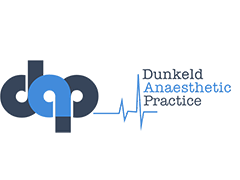Please take careful note of the following information regarding billing and anaesthesia accounts. Anaesthetic accounts can appear very confusing when you receive one. This will attempt to clarify how they are formulated.
This may be called premed or pre-op assessment in your account. This is a basic consultation of approximately 10 minutes and the preparation of the anaesthetic part of the theatre – this would include the creation of an anaesthetic plan, preparation of drugs, checking of equipment and monitors. This can take the anaesthesiologist up to 30 minutes and the fee covers this time.
This is a basic fee calculated according to the anaesthetic difficulty of the indicated surgical procedure
Depending on the duration of your procedure/operation, a time based anaesthetic fee is levied per 15 minutes or part thereof of your procedure
These relate to anaesthetic risk
- An additional “emergency fee” may be charged if your procedure is either unbooked prior to the start of the list or an emergency, irrespective of the time of the day.
- Emergency travel fee may be charged for the attending anaesthesiologist to make an unscheduled trip to the venue where your procedure takes place.
- Epidurals, nerve blocks, postoperative drug infusions and ‘patient controlled analgesia’ (PCA) devices for pain relief.
- Arterial and central venous lines for careful monitoring of your condition during and after the procedure.
- Should you need specific or goal directed blood pressure control during your procedure.
- The performance of ultrasound guided procedures.
- Patients in non-typical positions during the procedure.
- Patients less than a year old, or older than 70 years of age.
- Body mass index (BMI) if greater than or equal to 35kg/m2.
- Orthopaedic modifiers depending on the site of surgery.
- Operations on the head/neck.
- Insertion of a nasogastric tube.
- Should the patient have systemic illnesses causing functional impairment.
- Should the patient be ventilated or admitted to intensive care.
- All the time and risk modifiers are allocated specific unit values and each unit is then given a Rand value. These values are added together to determine the final anaesthetic cost.
- Previously the HPCSA determined the guidelines for reasonable professional fees, and the Council for Medical Schemes the “Reference Price List”, effectively the lowest tariff medical funders would pay. The Competition board and Courts have however stopped all setting of prices and at this stage each medical aid and doctor set their own prices. (Competition Commission ruling 2006) The rates that medical aids pay depends on the individual funder and the plans they offer.
- To enable us to provide the quality service that our patients deserve, our associates have linked their fees to the cost of delivering the service and benchmarked this to other professional services. The rate is based on training, expertise, experience and practice costs and does not relate to any medical scheme rate.
- Each associate at the Dunkeld Anaesthetic Practice sets their own rate annually, and there is no collusion between associates.
- Some of the associates have a ‘direct payment arrangement’ with some of the medical funders with no co-payments on these plans, and others do not. The onus is therefore on the patient to find out who is going to be their Anaesthesiologist, and to obtain a cost estimate from them should they be worried that there may be a shortfall which they should pay themselves.
- Your medical aid pays you out at the rate they unilaterally determine according to the plan you take with them which may be vastly different to the rate determined by the anaesthesiologist. Be aware that your medical aid/funder may call this “the 100% rate” but this refers ONLY to their rates.
- Additionally, every anaesthetic account has to include VAT as the government has legislated that healthcare is a value added item and they have added 15% to each account.
- To get a detailed quote, please click on the specific anaesthesiologist below. The following are important points to note about the quotation:
- It is impossible to predict how long a procedure will take, this makes estimating the cost of an anaesthetic extremely difficult. An estimated quote is therefore based on the average time taken for a procedure and assumes the procedure is of average complexity.
- If the procedure takes longer than the estimated time the cost will increase according to the duration of the procedure.
- It is the responsibility of you as the patient to find out from your medical funder how much of the account they will pay.
- You will receive a completely separate account from the anaesthesiologist. There will also be other accounts from the surgeon, radiologists, physiotherapist, pharmacist and hospital.
- Further explanations of the codes on anaesthetic accounts can be obtained from The Board of Health Funders (011-537-0200).
- The anaesthesiologist does not deal with your medical aid re account payment. You are responsible for settling the anaesthetic account with the anaesthesiologist and claiming from your medical aid.
- An account may be sent to your medical aid to help with your claim, but you are still responsible for payment of your anaesthetic account to your anaesthesiologist and interest and all legal fees that arise from any accounts that are not paid in full within 60 days.
Important Links with respect to billing
For quotations from a specific anaesthesiologist click their name on the Associates drop down menu above
Other useful links
